OnePlus 7 Pro vs. Galaxy S10e: Which should you buy?
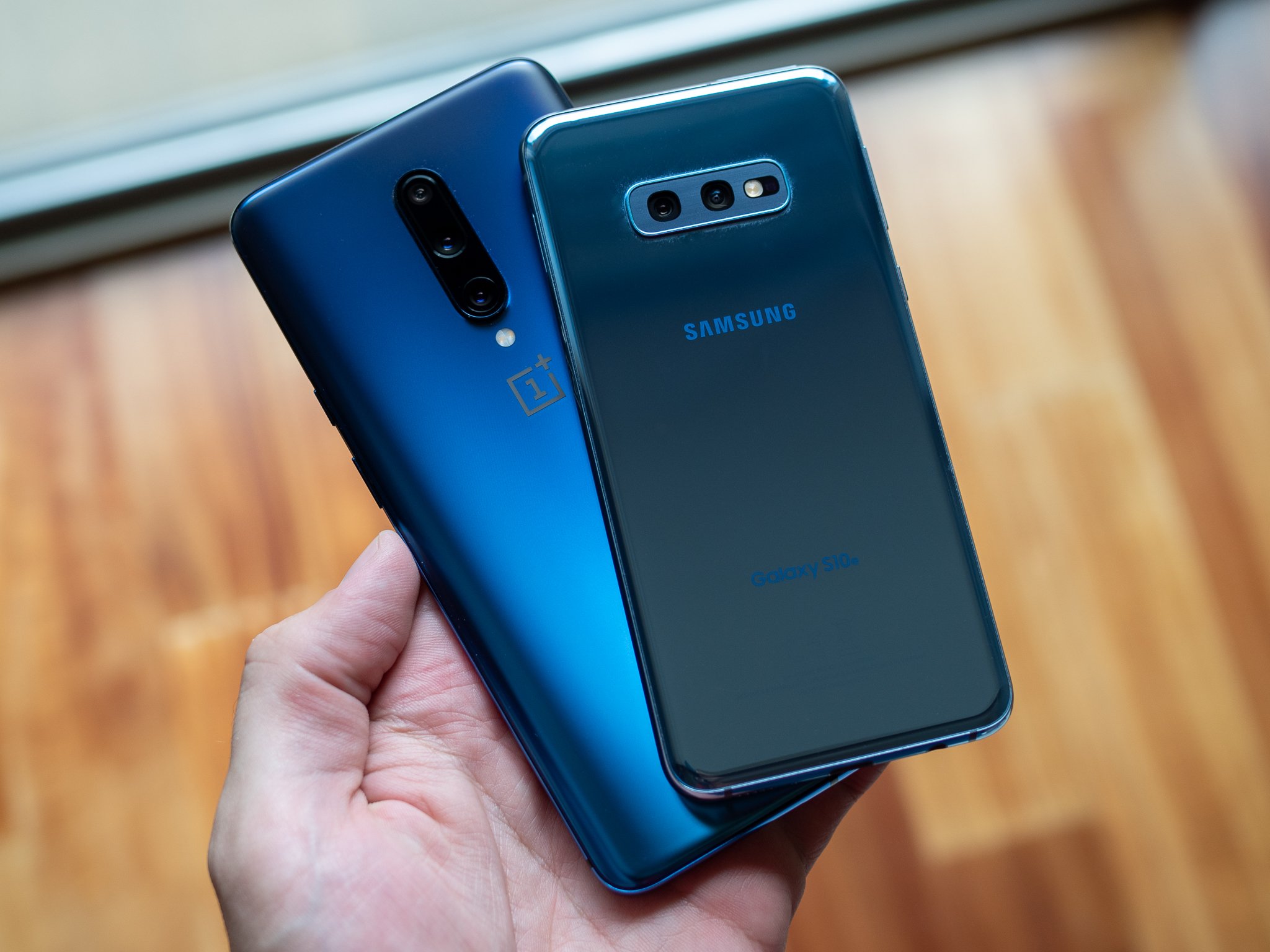
OnePlus 7 Pro
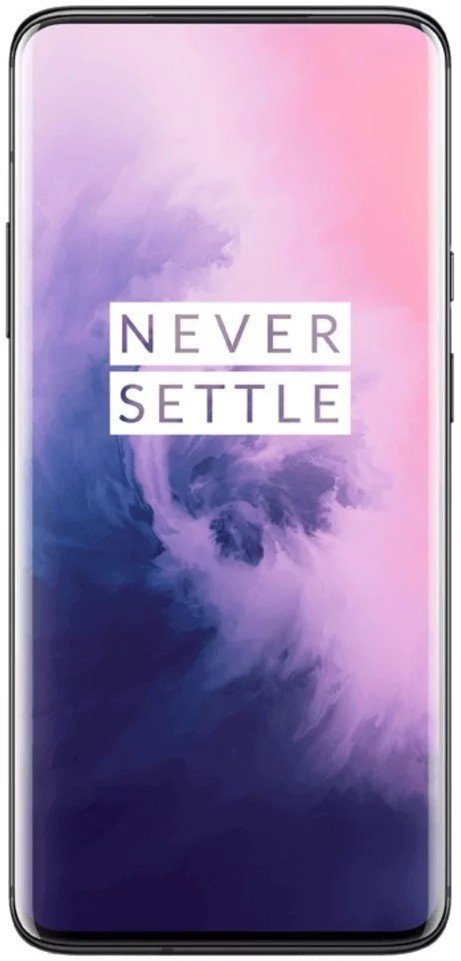
The OnePlus 7 Pro offers outsized value for money in many ways. It's a huge phone with a big screen and longer battery life than the S10e, and the specs it offers take it up a notch over Samsung's phone. Its software is cleaner and easier to use, too, which is a big bonus. Unfortunately, it's missing out on a few hardware features and camera quality that would make it a guaranteed winner against the S10e.
OnePlus 7 Pro
Big value
Samsung Galaxy S10e
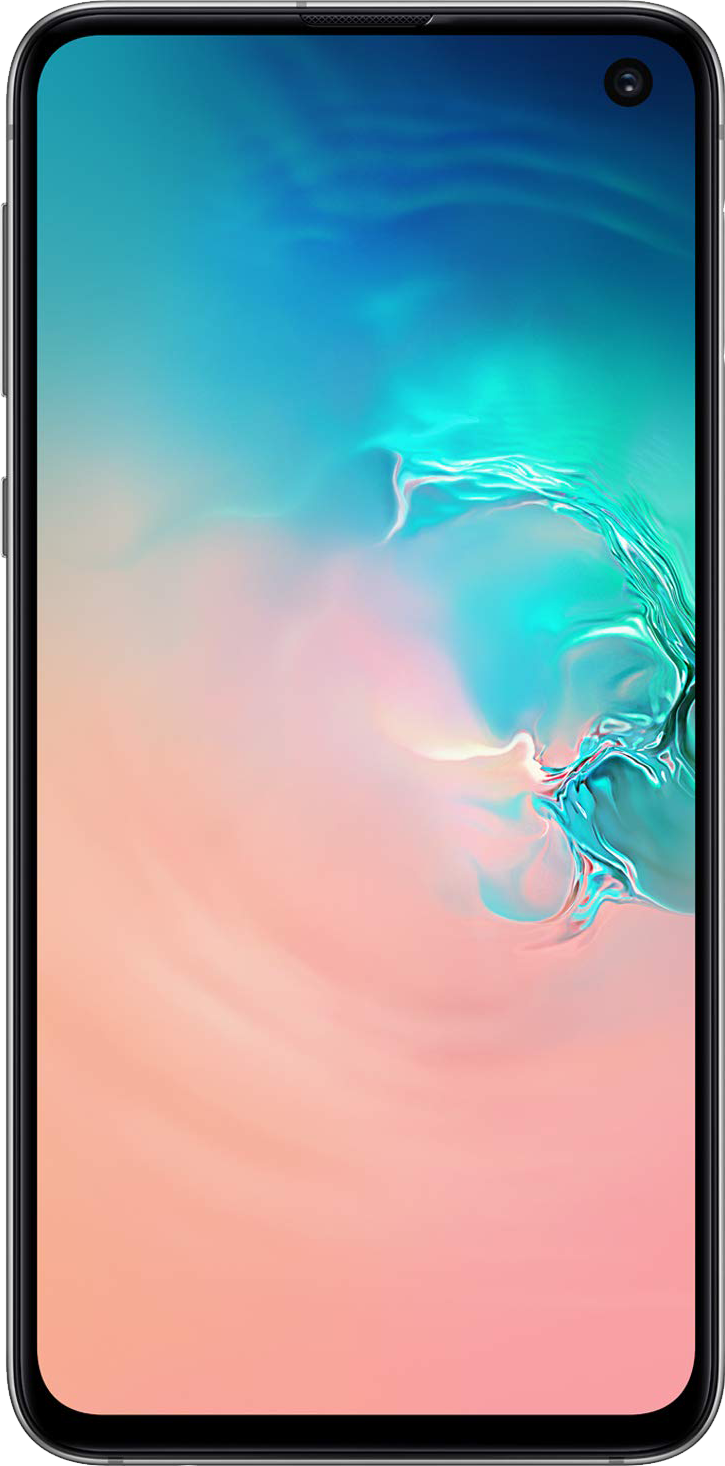
The Galaxy S10e takes the best parts of the Galaxy S10 series and offers them up in a compact and less expensive phone. That means all of the core Galaxy tenets are here, like great hardware features and wonderful cameras — and much of that can't be matched by the OnePlus 7 Pro. Its smaller body is easier to handle, but that also means it has a smaller display and battery life that doesn't stand up to heavy use.
Samsung Galaxy S10e
Compact and capable
The difference between the OnePlus 7 Pro and Galaxy S10e
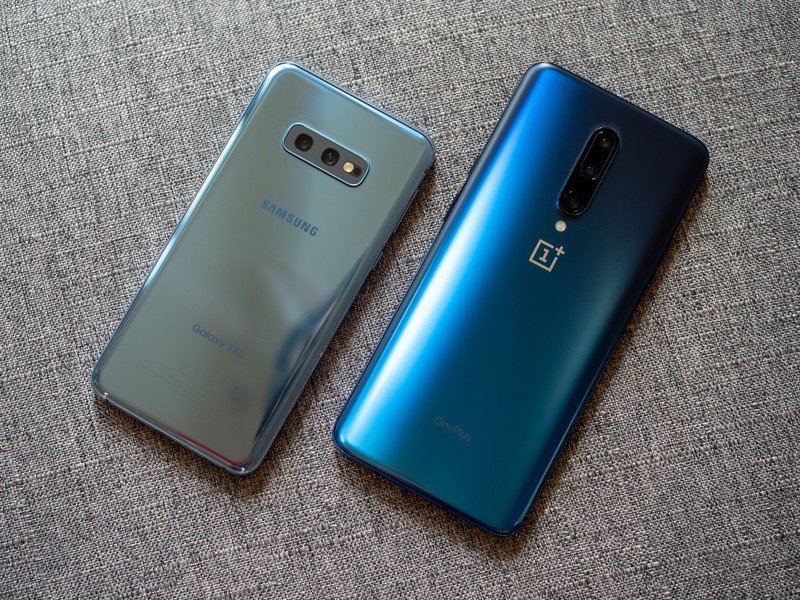
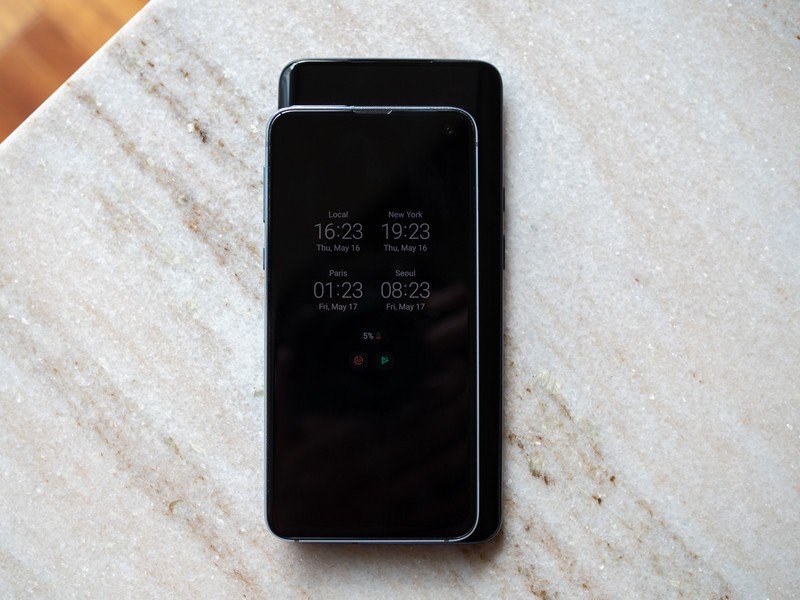
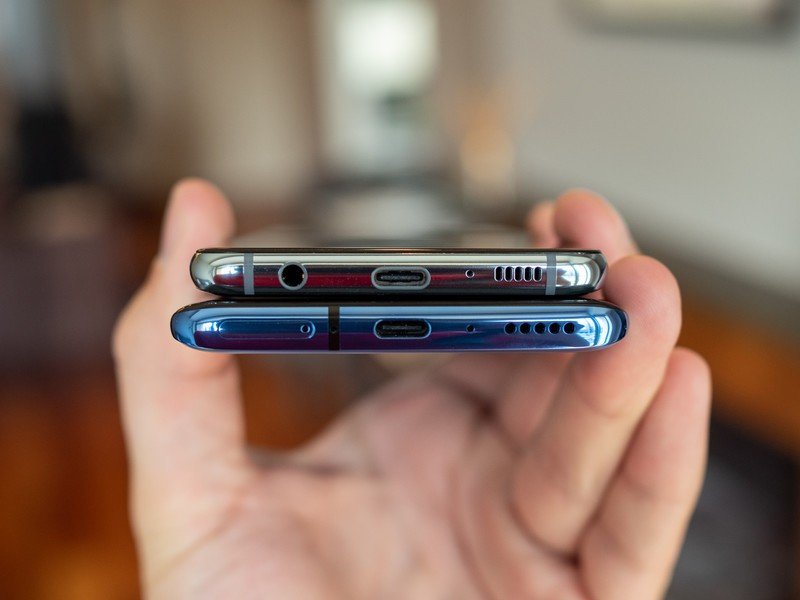
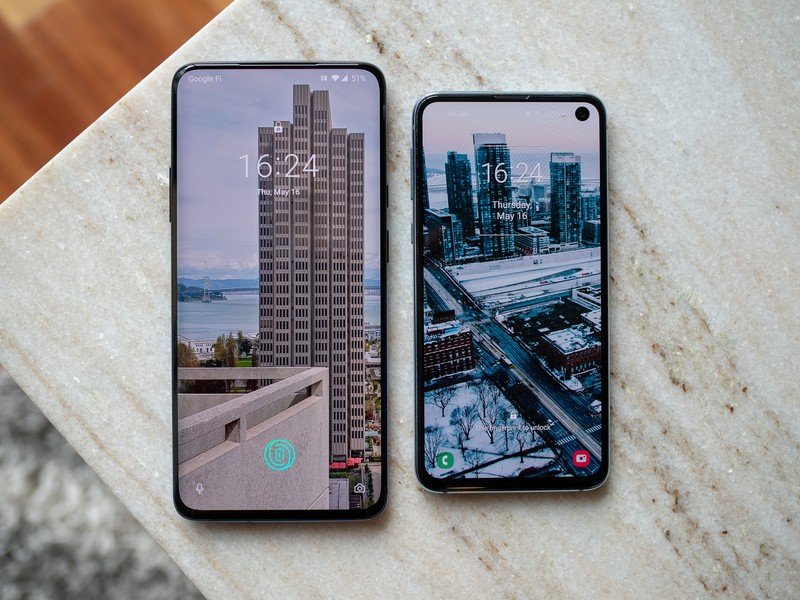
This is an extremely interesting comparison to make, because the OnePlus 7 Pro is the highest-end phone the company has ever made, while the Galaxy S10e is the "budget" phone of the Galaxy S10 lineup. But the prices are effectively the same: the OnePlus 7 Pro starts at $500, while the Galaxy S10e is $600.
The first and biggest comparison between these phones is their size, which is substantially different. The OnePlus 7 Pro is pushing the limits of what most people can reasonably hold and operate with one hand, and it's particularly heavy even for its size. At the same time, the Galaxy S10e is one of the few "compact" flagship-level phones available — it's 20 mm shorter and nearly 40% lighter. The S10e is a perfect phone for anyone who's felt left out by the general trend toward bigger and bigger phones; the OnePlus 7 Pro is one of the biggest pushing the envelope.
It's tough to overstate just how different these phones are in terms of size — and therefore screen and battery.
The downside of that smaller form factor is less display space for work and play: the S10e's 5.8-inch screen feels downright cramped compared to the truly massive 6.67-inch panel on the OnePlus 7 Pro. It takes some getting used to, and even if you love the overall size of the S10e, you may feel cramped on the screen. The panel itself is typically great Samsung quality, and even bests the OnePlus 7 Pro ever-so-slightly in brightness and outdoor visibility. The 7 Pro has the leg up in some respect with its 90Hz refresh rate, which dramatically smooths out motion and makes the phone feel even faster.
Associated with the size once again is battery life, where the S10e comes up short. Much like the screen size, you're going to feel the crunch of the S10e's 3100mAh battery if you're used to larger flagship phones — that's just one of the trade-offs of getting a phone this compact and one-hand usable. The OnePlus 7 Pro's 4000mAh doesn't give it amazing battery life by the standards of its large peers, but it completely destroys the S10e head-to-head. The S10e at least has wireless charging, though, and its standardized Quick Charge and USB-C wired options give you more choices to top up midday than the 7 Pro's reliance on Warp Charge (even though it's extremely fast when you do use it).
| Header Cell - Column 0 | OnePlus 7 Pro | Samsung Galaxy S10e |
|---|---|---|
| Operating System | Android 10OxygenOS | Android 10OneUI 1.1 |
| Display | 6.67-inch Fluid OLED3120x1440 (19.5:9)Gorilla Glass 5 | 5.8-inch AMOLED2280x1080 (19:9)Gorilla Glass 5 |
| Processor | Qualcomm Snapdragon 855 | Qualcomm Snapdragon 855 |
| RAM | 6/8/12GB | 6GB |
| Storage | 128/256GB | 128/256GBmicroSD expansion |
| Rear camera 1 | 48MP, f/1.61.6 μm pixelsOIS, EIS | 12MP, f/1.5 or f/2.41.4 μm pixelsOIS, EIS |
| Rear camera 2 | 16MP, f/2.2117-degree lens | 16MP, f/2.2123-degree lens |
| Rear camera 3 | 8MP, f/2.41.0 μm pixelsOIS, 3X telephoto lens | n/a |
| Front camera | 16MP, f/2.0Fixed focus | 10MP, f/1.9Auto focus |
| Security | Optical in-screen fingerprint sensor | Capacitive fingerprint sensor |
| Audio | USB-CStereo speakers | 3.5mm headphoneStereo speakers |
| Battery | 4000mAh | 3100mAh |
| Charging | Warp Charge 30W fast charging | Quick Charge 2.015W USB-C PDFast Charge 2.0 wireless |
| Water resistance | No | IP68 |
| Dimensions | 162.6 x 75.9 x 8.8 mm206 g | 142.2 x 69.9 x 7.9 mm150 g |
| Colors | Mirror Gray, Nebula Blue, Almond | Flamingo Pink, Prism Blue, Prism Black, Prism White, Prism Green |
The OnePlus 7 Pro has same Snapdragon 855 processor, base 6GB of RAM, and base 128GB of storage as the S10e, but the 7 Pro has configuration options for 8 or 12GB of RAM for not much more — that's a nice bonus, both for now and as you use the phone for the next year or two. The S10e has some little extras that get it back on level footing, though: a proper IP water resistance rating, wireless charging, a headphone jack, and an SD card slot are all great to have.
Be an expert in 5 minutes
Get the latest news from Android Central, your trusted companion in the world of Android
The OnePlus 7 Pro wins the spec fight, but the S10e has nice little hardware features that bring it back on level terms.
Both phones put their spec sheets to good use though, with excellent performance in either case. It's tough to find a single task that can bog down either phone — and in the 7 Pro's case, the extra headroom and super-light software gives you extra confidence that it will be just as fast and smooth years down the line. The S10e is super-fast out of the box, and we haven't yet seen any indication that it will slow down like many past Samsung phones either — it's just fighting a bit of a tough reputation on that front compared to the 7 Pro.
Aside from the size comparison, the biggest thing that will drive the decision between the 7 Pro and S10e is software. If you've experienced OnePlus software before, you get it: it's simple, fast, consistent, bloat-free, and customizable. OxygenOS is great to use each and every day, because it just does what you ask and gets out of the way. Samsung's software, on the other hand, requires a lot more management. There are so many settings, options, features, and tweaks that it takes weeks and weeks to get used to it and finally make it your own — and even still, there can be annoyances. If you don't have an opinion on the two software styles going in, you'll be fine — but if you know and appreciate OxygenOS, Samsung's software isn't likely to be an acceptable substitute for you.
If you appreciate OnePlus software, Samsung's isn't going to be an acceptable substitute for you.
The Galaxy S10e takes the advantage back when we talk about cameras. The main camera may not have a huge megapixel number, but that doesn't matter — the S10e's camera takes better photos across the board, with better colors and a wider dynamic range. Low-light quality is about the same between the two, but in all other situations, you're most likely to get an eye-catching and shareable photo out of Samsung's camera. The wide-angle shooter is also considerably better than the 7 Pro's, with quality that's much closer to matching the main camera and fewer issues with lens distortion and softness. And with how much better the S10e's main and wide-angle cameras are, you won't be missing the 7 Pro's 3X telephoto camera one bit.
Should you buy a OnePlus 7 Pro or Galaxy S10e?
People will understandably cross-shop these phones because they're similarly priced, but there's far more to choosing these phones than just looking at a price tag and choosing one or the other on a whim. There are substantial differences in what they offer — in size, capabilities, specs, and features.
Make your choice based on size first, then battery life and cameras.
The OnePlus 7 Pro is a much larger phone. That means you're going to have a tougher time using it one hand and fitting in your pocket. If you can't get over this hurdle, then you won't appreciate its larger screen and longer battery life anyway. At the same time, you may appreciate just how compact and usable the Galaxy S10e is, but if you're going to feel cramped on its 5.8-inch display and worry about battery life, then you can steer clear.
Beyond the size consideration, both phones have excellent spec sheets, hardware quality, displays, and features. The 7 Pro offers a better value with high-spec options that also cost less than the S10e, but the S10e fights back with lots of little hardware feature extras. Plus, the S10e's cameras are a clear step up from the 7 Pro. OnePlus has a leg up in software quality and speed that can't be matched by any company — but if you've used Samsung software before, you're going to handle the S10e just fine and enjoy its performance.
So, when you line up these two phones, make a decision on size first. If you're somehow indifferent on big versus small, look at the extra features and capabilities each offer — focusing on screen size, battery life, hardware extras, and camera quality. The OnePlus 7 Pro is a superb value starting at $500, and the Galaxy S10e has a ton to offer in a compact size for about the same money. They both have their merits — they just aren't particularly comparable head-to-head.

A huge phone with great specs
The OnePlus 7 Pro offers outsized value in many ways. It's a huge phone with a bigger screen and longer battery life than the S10e, and the specs it offers take it up a notch. Its software is cleaner and easier to use, too, which is a big bonus. Unfortunately, it's missing out on a few hardware features and camera quality that would make it a guaranteed winner against the S10e.

The core Galaxy experience in a compact size
The Galaxy S10e takes the best parts of the S10 series and offers them up in a compact size for less money. That means all of the core Galaxy tenets are here, like great hardware features and wonderful cameras — and much of that can't be matched by the OnePlus 7 Pro. Its smaller body is easier to handle, but that also means it has a smaller display and battery life that doesn't stand up to heavy use.
Andrew was an Executive Editor, U.S. at Android Central between 2012 and 2020.

